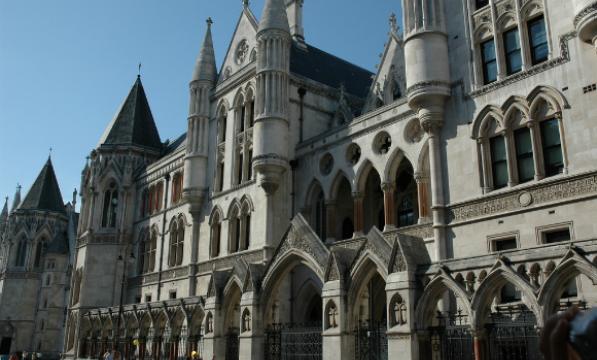CTC win! Victims of road crime gain equal rights

Treating 'road crime' as 'real crime'
Historically, victims of road crime have been treated differently to other victims. The 'Code of Practice for Victims of Crime' (Victims' Code) gave victims various rights, including access to information about the police investigation and victim support services.
The definition of 'victim' in the code, however, excluded most victims of motoring offences, including those injured by careless or drink drivers.
An overarching theme of CTC's Road Justice Campaign is that 'road crime' should be dealt with by the justice system as 'real crime', and not a 'minor road traffic' offence. Treating victims of road crime less seriously, as outlined within CTC's Role of the Police document, always implied the opposite.
The consultation
This summer, the Ministry of Justice (MOJ) opened a consultation on the Victims' Code, which included possible changes to extend the definition of 'victim' to include the victims of all motoring offences. CTC responded to this consultation and asked for your help to secure equal rights for road crime victims by sending a supportive response to the MOJ. 1,800 of you did so within three days!
Increased victims' rights
The MOJ has now published the changes to the Victims' Code, which will be implemented on the 16 November 2015. The positive changes for cyclists are:
1. The definition of 'victim' has been extended to include all victims, including those from road traffic offences, enabling them to access information about prosecution decisions, case progression and support services.
2. The Code has been extended so that victims who report a crime are entitled to receive a written acknowledgement from the police stating the basic elements of the crime. This is particularly helpful for cyclists reporting incidents who previously experienced difficulty obtaining any response from the police.
3. The Code has been extended to other prosecuting organisations, including the Health and Safety Executive. This is crucially important for victims injured by drivers in the course of their employment (25% of all road casualties), where the prosecution of employers for health and safety breaches is being considered.
Where we still have no change
The MOJ has declined to implement CTC's following proposals:
1. To add the Traffic Commissioners and Coroners to the list of organisations who have to follow the Victims' Code. The MOJ claim that neither body has an investigative or prosecutorial function;
2. To extend the 'Victims' Right to Review', which enables victims to request a review of a decision not to prosecute, to all offences and not just 'serious offences'. The MOJ argues that the Crown Prosecution Service and other prosecuting authorities should be left to determine which offences the right to review should apply to.
At first glance the Victims' Code changes might not seem groundbreaking but they do reflect at last an acceptance that 'road crime' is 'real crime', a significant step in the Road Justice Campaign.
Duncan Dollimore, CTC Road Safety and Legal Campaigns Officer
Where that leaves us?
The refusal to extend the 'Victims' Right to Review' means that cyclists injured in collisions are unable to effectively challenge a police decision not to prosecute a driver for careless driving or other 'summary only' offences which can only be dealt with in the Magistrates' Court. This is the most disappointing omission from the amended code and CTC is considering how to pursue this issue further via the All Party Parliamentary Cycling Group. This remains an important campaign issue for CTC.
Road Safety campaigners have, however, been attempting to persuade and pressurise the police, prosecution authorities and politicians to treat 'road crime' as 'real crime' for many years. Listening to and considering victims is fundamental to that process.
Victims' voice - your voice
These changes concern the voice of the victim. CTC leads campaigns but needs your support to maximise their impact. 1,800 of you did so, making your voice heard through e-mails to the MOJ. A big thank you to you all. This campaign shows your input really does make a difference, so please continue to add your support for future campaigns by donating today.

